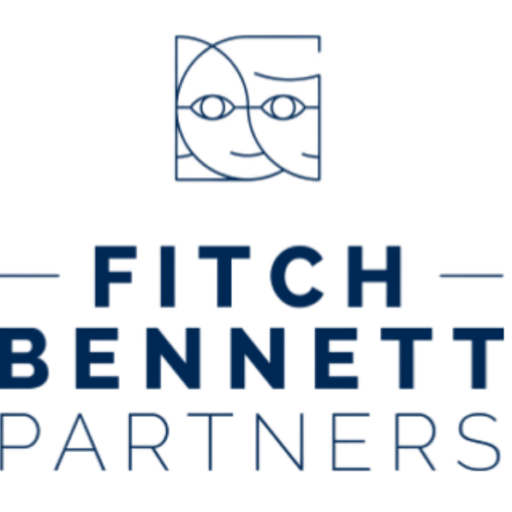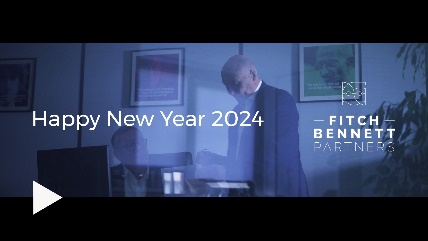As we enter 2024, the executive recruitment market in the Benelux region – comprising Belgium, the Netherlands and Luxembourg – looks dynamic and promising. Despite a changing global economic context, the focus on innovation and strategic restructuring within companies in the region indicates a positive trend for top-level executive recruitment. According to projections, the Benelux private sector should see a significant increase in executive positions, with an estimated rise of 0.8%, representing around 100,000 additional C-level positions in the first quarter of 2024. Such promising figures! This increase, exceeding expectations at the end of 2023, reflects a robust and growing labor market for highly qualified and remunerated executives. Companies facing competition and changing expectations In the Benelux, as elsewhere, the war for talent is intensifying, especially for high-level positions. A survey of the region’s top executives highlights heightened demands: 75% are looking for competitive remuneration packages, 65% value a better work-life balance, and 60% want substantial opportunities for professional development. To remain competitive, companies must not only meet these expectations, but exceed them. The most sought-after executive roles reflect the current strategic needs of businesses: transformation directors, to steer major organizational changes; chief financial officers, specialized in external growth strategies; and new general management roles, to address the challenges of managerial transition. These roles are essential for navigating in an ever-evolving business environment. The sectors with the highest demand for executive talent include technology, healthcare, and renewable energy. These booming industries are in search of leaders capable of guiding innovation and ensuring long-term sustainability. Preparing talent for an uncertain future The upcoming economic and technological challenges require meticulous preparation of executive leaders. Skills in innovation, change management, and digital leadership are now indispensable. Executives must possess increased adaptability and strategic vision to thrive in a volatile environment. The current uncertainties, whether economic, environmental, or technological, demand that companies strengthen their ability to adapt quickly. Recruiting executive leaders with specific expertise in these areas becomes a key strategy to ensure organizational responsiveness and resilience. In conclusion, the first quarter of 2024 represents a period rich in opportunities for the recruitment of executive leaders in the Benelux. To attract and retain the best talent, companies must continually innovate and adapt to the evolving labor market. Collaboration with specialized recruitment partners, such as Fitch Bennett Partners and their regional affiliates Jean-Paul Bissen – Partner Executive Search & Laurent Aucquière, leadership coach, becomes crucial for successfully navigating this changing landscape.
Spain: what recruitment trends are expected in 2024?
As 2024 gets underway, Spain’s executive recruitment market finds itself at a crossroads, with unique challenges and opportunities shaped by a changing economic context. In this landscape, understanding and adapting to new recruitment trends is essential for Spanish companies wishing to attract the best talent for their C-level positions. For the year 2024, economic forecasts and market research suggest a 0.6% increase in C-level positions in Spain, representing around 80,000 additional positions compared to 2023. This positive trend reflects an economic recovery and a dynamic labor market for senior executives. Companies face competition and changing expectations Executives in Spain are increasingly setting the bar high in terms of expectations, with a strong emphasis on competitive salaries, a balanced work-life balance, and significant opportunities for professional development. To remain attractive, Spanish companies need to develop innovative strategies, including attractive remuneration packages and tailored career development programs. Training future talent for a VUCA world In the face of economic uncertainties and technological advances, the Spanish market is focusing on specific skills for C-level executives: capacity for innovation, strategic agility and expertise in digital transformation. Companies that actively prepare their executives for these challenges will be better positioned to succeed in the future. The year 2024 promises to be a period of significant change and opportunity for executive recruitment in Spain.To successfully navigate this landscape, companies need to stay at the forefront of recruitment trends, adapt quickly to market developments and focus on attracting and retaining top talent. Collaboration with specialist recruitment partners, such as Fitch Bennett Partners and their regional affiliates Héléna Terol, Partner – Executive Search can play a key role in achieving these goals.
Projecting recruitment trends to 2024
The world of recruitment is constantly evolving, shaped by technological advances, societal changes and new candidate expectations. Being at the beginning of 2024, it’s essential for high-potential recruitment professionals to stay on top of trends to attract and seduce talent. But what recruitment trends will shape the professional landscape in the coming year? With 2024 starting, recruitment professionals are going to have to get ready to shake up their habits to meet the challenges of emerging trends. In order to remain competitive in the recruitment market, artificial intelligence, candidate experience, agile recruitment and employer branding will become the new key success factors in the search for and integration of talent. By adopting these new approaches, companies will be better positioned to successfully transform increasingly strategic recruitment. Synergy between artificial intelligence and recruitment Artificial intelligence (AI) has already transformed the way companies recruit, but by 2024 its role is set to become even more central. From intelligent chatbots to matching algorithms, AI should make it easier to shortlist candidates, speeding up the recruitment process. AI-based tools will also eliminate unconscious bias, ensuring fairer and more diverse recruitment. A predominant candidate experience Companies increasingly understand that recruitment is not just about hiring, but extends to the integration and ongoing development of talent. With society constantly moving towards well-being in the workplace, the candidate experience will undoubtedly be at the forefront in 2024. Companies will need to focus on creating a smooth, positive candidate journey. For example, with innovative virtual interviews featuring personalized feedback, companies will need to be inventive in offering a memorable experience from the very first contact with the candidate. Immersive technologies and virtual reality solutions could even play a key role in simulating work environments for candidates. Read also: TALENT WAR: HOW CAN YOU ATTRACT THE BEST CANDIDATES TO YOUR COMPANY? Competency-based recruitment The rise of skills-based recruitment continues in 2024. Companies are increasingly turning away from traditional criteria such as qualifications to focus on the specific skills needed to succeed in a position. From standardized skills assessments to professional development platforms, this approach offers a more accurate view of candidates’ real capabilities. A flexible approach Agile methodology, well known in software development, will make its entry into the recruitment field. Recruitment teams will adopt flexible approaches to adapt quickly to changes in the job market. This will involve constant communication with candidates, rapid adjustments to processes and close collaboration between different departments to meet changing business needs. A stronger employer brand Competition to attract the best talent remains intense, and by 2024, employer branding will become an even more crucial part of the recruitment process. Companies will invest more in communicating their corporate culture, values and development opportunities. Recruitment platforms will emphasize transparency, enabling candidates to better understand the reality of working within the organization. As 2024 is starting, these trends demonstrate the continuing transformation of the recruiter’s profession and its requirements. AI is redefining the search for talent, the employee experience is coming to the fore, skills-based recruitment is gaining ground, and diversifying recruitment sources is becoming crucial. Direct approach professionals who embrace these evolutions will have a head start in the quest for talent and in building dynamic, competent teams.
Corporate governance in the spotlight!
At a time when corporate governance is more than ever in the spotlight, Fitch Bennett Partners, in collaboration with Top Management France, took the initiative of bringing together a distinguished panel of 40 executives for a morning of enriching debate and exchange. We are delighted to present the video of this landmark event. Building a solid corporate governance is not a matter of improvisation. It’s a meticulous process that encompasses the development of strategies, the application of rigorous procedures, the guarantee of financial transparency, the establishment of effective communication and the deep integration of corporate culture. These fundamental pillars, although often put to the background in times of prosperity, are crucial to maintaining stability and performance, particularly in a VUCA world (Volatility, Uncertainty, Complexity and Ambiguity.) The question of how to structure efficient governance remains paramount: Is there a universal model, or must each company forge its own path? How can companies align governance and performance to meet tomorrow’s challenges? The morning session brilliantly addressed these issues, drawing on the perspectives and experiences of our renowned speakers, including Eric Pellerin, Managing Director France at Mitsubishi Electric, and Stanislas de QUERCIZE, former CEO International at Cartier and current Chairman of Savih, and moderated by Laurent Nocca, Managing Director of Top Management. The discussions provided an opportunity to: Our sincere thanks to all participants.
Les Échos: 2024 ranking of the best recruitment agencies
Many thanks to our customers and candidates for this recognition in the Les Echos 2024 ranking. This is a major milestone, both for our teams in France and internationally.
Fitch Bennett Partners wishes you a happy new year 2024
The entire Fitch Bennett Partners team wishes you a very Happy New Year! May 2024 be a year of opportunities for personal fulfillment and success. Let’s tackle this new year with energy and determination. And to begin with, we invite you to discover our website. Our best wishes for happiness, health and success.
2024 recruitment trends in the UK
As we enter the first quarter of 2024, the UK executive job market is showing promising prospects, despite a complex global economic environment. The focus on innovation and strategic restructuring in UK companies suggests a positive trend in executive recruitment. Let’s take a look at them together. A new year often means renewal, and all sectors are included! Keeping abreast of the latest trends in recruitment is essential for recruitment agencies, so that they can offer a premium experience to both the candidate and the companies in need of new recruits. In a context where recruitment methods are constantly changing (with the emphasis on remote interviewing and the proliferation of recruitment automation tools), it is vital for recruitment companies to adapt. UK companies are among them, especially as a significant increase in hiring is forecast for Q1 2024.Read also: https://www.fitchbennettpartners.com/en/keep-up-with-recruitment-trends-q1-2024-in-germany/ Promising figures According to projections by the Office for National Statistics (ONS), the UK private sector is set to see a 0.7% increase in senior management positions in Q1 2024. This increase represents around 120,000 additional positions, exceeding the figures for the final quarter of 2023. Companies face competition and changing expectations Like France, British companies are facing stiff competition in the quest for talent. British executives, according to a study by the Chartered Management Institute (CMI), are placing increasing emphasis on requirements such as competitive remuneration (70%), better work-life balance (60%) and professional development opportunities (55%). Preparing talent for an uncertain future UK companies are focusing on preparing talent for key roles, anticipating a future marked by economic uncertainty and technological challenges. This involves redefining the skills required, with a focus on innovation, resilience and the ability to lead digital transformations. Finally, as the first quarter of 2024 looks promising for executive recruitment in the UK, companies must continue to innovate and adapt to attract and retain the best talent. The ability to navigate an ever-changing environment will be key to ensuring the success of companies and executives in this new economic landscape. Hence the value of calling on industry professionals such as Fitch Bennett Partners (who work closely with international, and its UK partner Mallory Partners represented by Jeremy Purkis and Martin Luise).
Keep up with recruitment trends Q1 2024 in Germany
In Germany, the unemployment rate among senior executives is generally low, hovering around 1-2% according to data from the German Federal Employment Institute (Bundesagentur für Arbeit). An astonishing figure in the midst of the economic crisis, but one that once again underlines the fact that the job market is in constant movement. Let’s take a look at how and look ahead to 2024.
Press Release – Fitch Bennett Partners announces new partner : Bernard LE CHEVALIER
Fitch Bennett Partners, a recruitment consultancy specializing in Executive Search, Transition Management and Career Management, is pleased to welcome a new Partner, Bernard LE CHEVALIER, to strengthen its development. Bernard has over 30 years’ experience in the corporate world and with leading recruitment firms. He began his career in international raw materials trading, before joining a major logistics group, GEODIS, where he held General Management positions in distribution subsidiaries in France and Europe. For over 15 years, Bernard has been working on recruitment issues and supporting companies on Executive Search and Transition Management assignments. (Relay/Transformation). Bernard intervenes in all corporate support functions and key operational positions, relying on his business expertise, a network of experienced managers and executives, and the relationships of trust he has built up throughout his career. Bernard is a graduate of the Institut Supérieur de Gestion and holds a master’s degree in international business (Negocia/ESCP). He is a certified professional coach. We are delighted to welcome Bernard to the FITCH BENNETT Partners team. Bernard LE CHEVALIER Partner Mail: blechevalier@fitchbennettpartners.com Mobile: +33(0)6 17 16 38 03
The 7 essential qualities of a successful interim manager: the ideal profile for successfully managing change
An interim manager must be able to take the reins in times of change and lead the company towards new horizons. This seasoned professional must provide expert and rapid management to companies facing new challenges. In this article, we explore the essential qualities of an accomplished interim manager, and the profile required to excel in this demanding role. What is the profile of an interim manager? The ideal interim manager is a seasoned leader with solid experience of managing complex businesses and projects. They have a sharp strategic vision and a remarkable ability to adapt to different contexts. He communicates fluidly, inspires confidence and is able to unite teams around transformation objectives. His resilience and ability to make objective decisions make him a powerful agent of change, capable of leading companies towards a promising future, even at the most critical moments. People skills and know-how: the 7 qualities required of interim management experts 1. Experience and expertise The first pillar of an interim manager is his or her experience and expertise. These temporary leaders bring with them a wealth of experience acquired over many years in different sectors and complex situations. Their in-depth knowledge of the market, industry best practice and strategic management methods is a major asset when it comes to implementing essential changes within a company. So much so that this specialism can become a recruitment argument. For example, a company may be looking for an interim manager who can speak a specific language or who has a detailed knowledge of a particular business sector. 2. Adaptability Adaptability is essential for any interim manager. Every company is unique, with its own specific culture, processes and challenges. An interim leader must be able to integrate quickly into a new environment and understand the specific challenges facing the company. He or she will need to adapt quickly to provide tailor-made solutions. 3. Objectivity Objectivity is a crucial virtue for this interim management expert. Faced with delicate situations, he or she must take impartial and pragmatic decisions, guided by the company’s best interests. This expert, positioned within the company, must keep an overview, thus avoiding any favouritism or partiality which could be detrimental to the success of the change. 4. Speed of decision-making In the business world, time is money. An interim manager must be able to make informed decisions quickly. Faced with constant change, sometimes uncertainty or the pressures inherent in change, a temporary leader must act with confidence and diligence to stay on course towards the objectives set. 5. Resilience and stress management The interim manager is often confronted with stressful and complex situations, where resistance to change may be present. Resilience is an essential quality for coping with these challenges and maintaining positive leadership. A good interim manager inspires confidence, calms anxieties and motivates teams to move forward despite difficulties. 6. Communication skills As in any field, communication is the key to effective change management. An interim manager must be a good communicator, capable of sharing his vision, listening to the concerns of stakeholders and creating an open and constructive dialogue. Transparency and active listening are essential elements in mobilising and rallying teams behind the transformation project. In this way, he or she will need to inspire sufficient confidence to mobilise the teams and ultimately achieve the objectives set. 7. Strong leadership Finally, this professional must be a charismatic and inspirational leader. This role involves guiding teams through uncertainty and creating a climate of cooperation. Strong leadership aligns the efforts of all those involved towards a common goal and ensures the success of the change. Have you found the interim manager you need? Now it’s time to prepare for their arrival. In this article, we’ll take you through the various stages involved in welcoming your interim manager. This way, together, you can achieve the desired results.













